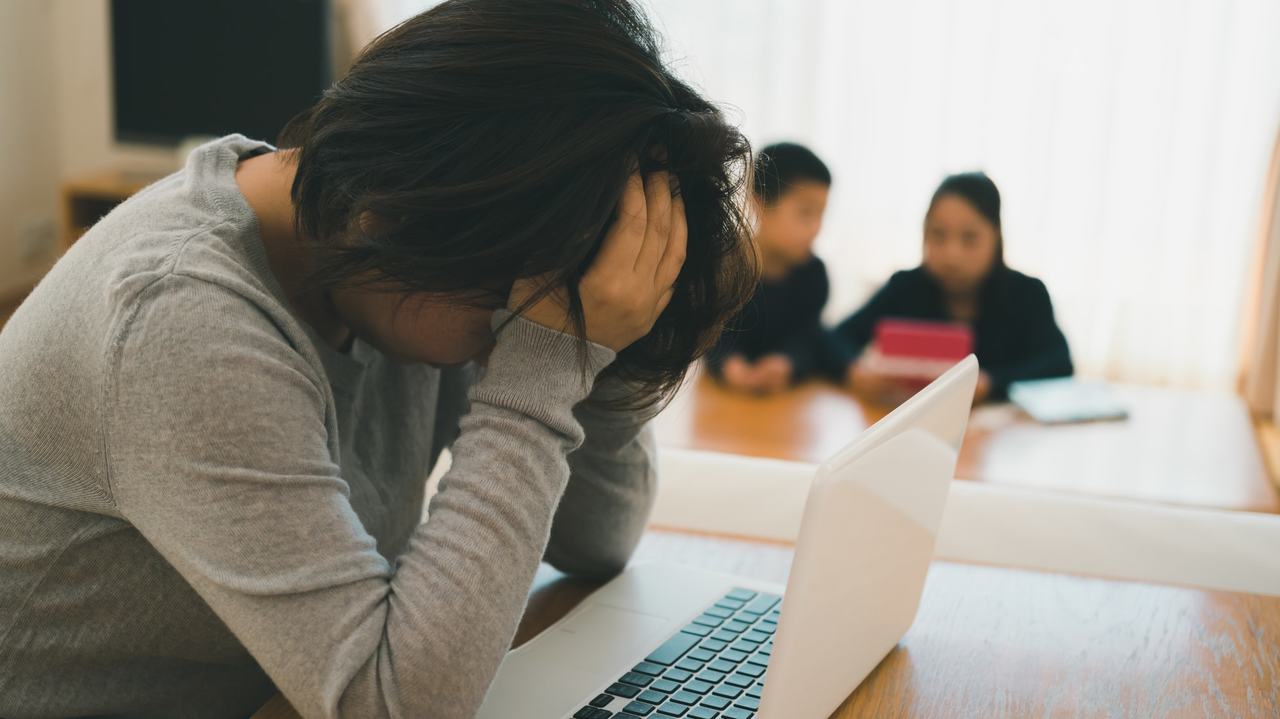
Whether it’s been six weeks, four weeks or 11 weeks, the impact of the Covid-19 lockdown has been felt by all. Although many countries are beginning to ease restrictions, for parents, this pandemic remains challenging. Countless continue to work from home while home-schooling their children, maintaining their homes and supporting their emotional well-being, as well as their children’s.
Patrick, from Holliston Massachusetts, told the WNYC Studios Podcast (part of New York Public Radio), “The toughest part of every workday is trying to balance my workload as a teacher in Boston, my wife’s workload as a therapist, and the needs of our [three] children. “
For many American families, this is an ongoing struggle.
According to the 2019 National Compensation Survey (NCS) from the Federal Bureau of Labor Statistics, only 7% of civilian workers in the U.S., or about 9.8 million of the nation’s roughly 140 million civilian workers (both private and government), have access to a “flexible workplace” benefit, or telework. This has largely been accessed by managers, other white-collar professionals and the highly paid.
This pandemic is changing that.
Over half of U.S. employees (75 million workers) hold jobs and have responsibilities that could be performed, at least in part, from home. This is according to a special analysis of the American Community Survey conducted by Global Workplace Analytics, which has been studying workplace trends for more than a decade. Kate Lister, president of GWA predicts that “the longer people are required to work at home, the greater the adoption we will see when the dust settles.”
This has huge implications for parents.
A Bloomberg article published on April 23 entitled, “Three Hours Longer, the Pandemic Workday Has Obliterated Work-Life Balance,” states: “Six weeks into a nationwide work-from-home experiment with no end in sight, whatever boundaries remained between work and life have entirely disappeared.”
Ruthie Wolfe, a married director of a non-profit and mother of a two-year has a unique take.
“We are not working from home, we are at home, during a crisis, trying to work.”
Wolfe said this was a vital distinction because if we frame this period as anything more, “we lose our boundaries that start to undermine our physical, mental, and emotional health.”
Caring for a two-year-old has changed her workday that was from 9am-4pm four days a week. She now works during her daughter’s naps and after dinner until 10pm or 11pm. Her husband is also working from home from 8am-5:30pm. The biggest adjustment to her work-life balance has been the 24/7 presence of her husband.
“I was always the sole caretaker of our daughter, which made sense when he wasn’t working at home, but now that he’s home and we are both working, he hasn’t adjusted to sharing responsibilities…[which] has given way to resentment.”
This is a common feeling, according to Jessica Grose, Lead Editor of The New York Times Parenting. In her WYNC Studios Podcast, “The Takeaway,” guest host Lizzie O’Leary, asked her about this.
“The [responsibility] is falling more to moms. Even if chores are divided equally, moms feel the greater amount of emotional responsibility to maintain the mood of the family.”
Grose said although it’s pretty hard on involved dads, it’s tougher on moms because “it’s just not feasible to work and watch your children all day at the same time.”
Linda Espinosa de Ross, a married mother of two (middle school and elementary) and owner of Cuvée Coaching, feels this responsibility.
“My husband is very helpful but the brunt of the homeschooling responsibility falls on me because his work is not as flexible as mine.”
For Espinosa de Ross, her workday schedule has definitely changed. She now has to set up homeschooling activities, Zoom meetings with teachers, deal with her daughter’s meltdowns due to missing school and friends, check on their school work, set up P.E., and manage online piano and choir lessons.
“So my work has become chunks of work and meetings throughout the day, which definitely causes me frustration, as I’m a very driven and get-things-done kind of person.”
Mothers can relate to this pressure, but what if you had to do this solo?
In the same WYNC Studios Podcast, Jessica Ziegler, PsyD, author of “Mommy Burnout,” and a registered clay therapist said this pandemic is particularly difficult for parents who have to do this singly.
“They’re taking this day by day. They felt burnt out weeks ago – from the get go. It’s so overwhelming to have no break, no additional support. That is really, really tough.”
Janet Jensen, a therapist and single mother of two teens can relate.
One would imagine that teens would be less work, but for Jensen, it’s not that simple. They need her help with cooking, homework, social issues and keeping up with their own Zoom meetings.
“I did all those things before but now they come all day long without breaks.”
Jensen has the added stress of household management like cooking, cleaning, gardening, parenting, keeping her business afloat, and applying for government assistance programs.
“I feel like each one of those is a full-time job and I have to do all of it with constant interruptions.”
According to Psych Central there are Five Stages of Grief and Loss. These are: 1. Denial and isolation; 2. Anger; 3. Bargaining; 4. Depression; 5. Acceptance. Ziegler says we have already experienced the first three stages. Now we are heading to the fourth and fifth stage.
The first was denial: Is this really happening? The second stage was anger: Can I do this? The third stage was bargaining: OK, I can do this short term. But as the weeks have gone on, the feeling is: Actually, I really can’t do this!
As a result, she said there’s a high consumption of alcohol, online counseling services have increased to over 200%, and anxiety medication is being prescribed upwards of 30%.
How are moms coping in this climate?
“Self-care for me right now, is actually telling my husband that I need to work and he needs to take a turn with homeschooling,” said Espinosa de Ross.
She also asks not to be disturbed while she does an online workout, and has weekly video chats with her friends because she needs a connection outside of her family.
Wolfe has taken similar steps.
“I am starting to talk about how I am feeling and what I am experiencing through this pandemic with my husband. It has been extremely difficult.”
She’s also discussing this challenge with friends. This has helped her realize that she’s not alone. Connecting with college friends via Zoom/FaceTime/Goggle Duo, texting old friends, and joining a 5:45am Pilates class has been helpful. Her biggest joy?
“I have been making art cards with my two-year-old daughter,” she said. “It feels good to mail these cards to friends who live alone.”
For Jensen, not driving around has been beneficial.
“I live in a lovely neighborhood, can take walks to a beautiful park, and have a lot of friends to ease the blow of social distancing.”
Dave Donovan, leader of Publicis Sapient, a global financial-services business said that given the early results, remote work is here to stay. “Once the genie’s out of the bottle it’s not going to go back.”
To cope in this new climate, Ziegler suggested that parents need to lower their expectations and not feel guilty about work.
“To think that you’re going to be distance learning teachers, run the household, [and] try to keep food on the table is not realistic.”
Instead, the highest priority right now is to keep the household feeling safe and calm.
“The fact that [kids] can see parents as calm, managing their own anxiety, taking care of themselves, having some fun and [laughter] – all those things are most important right now.”
Ziegler said kids’ mental health is more essential than their academic functioning at this time.
What about parental mental health?
Grose said it was important not to feel ambient pressure from people posting on Instagram and “their perfect school set up and their kids thriving,” while you ask yourself: “Why does my house feel like a disaster?”
Espinosa de Ross concurs. Don’t feel bad if you see your friend or neighbor on social media being the perfect teacher, wife, mom, worker, learning a new language, etc. Just be happy for them and do whatever works for you and your family.
As the poem, “We are Not in the Same Boat,” reflects:
“Each of us will emerge, in our own way, from this storm.
We are all on different ships during this storm
Experiencing a very different journey.
Realize that and be kind.”
(Author Unknown).




